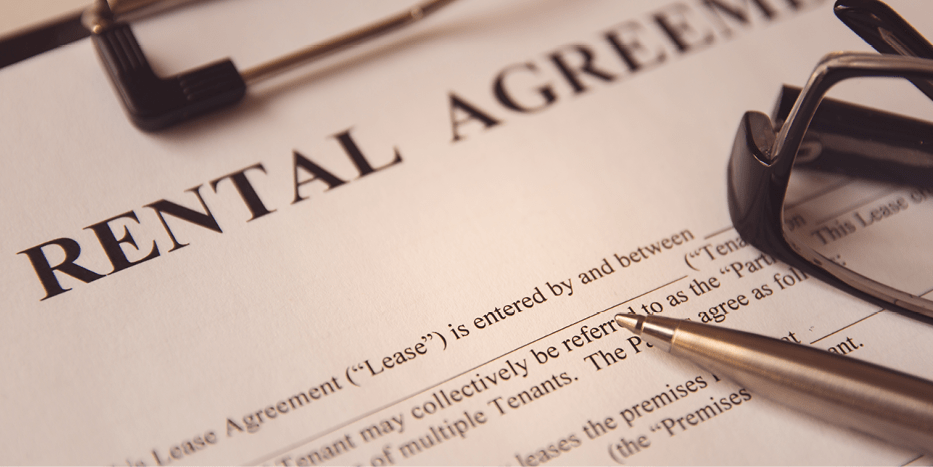7 Tips: What to Do Before Renting Out Your HOA Home

Leasing can provide a steady stream of extra income for landlords and property owners. However, if the rental home is part of a homeowners’ association (HOA), it may be more difficult to put the home up for lease. HOAs have rules and regulations that can limit rental potential, so it’s important you understand what’s allowed, and what’s not allowed, before leasing your HOA home or property. Here, RHOME’s Bryce Ross and Jason LeDell share seven tips on what to do before leasing out your HOA rental home.
1. Check Your Governing Documents
To ensure your rental goals align with the policies of the community, first check the governing documents. Your association’s governing documents detail the procedural processes, rules, and regulations regarding renting. Every community is unique and may have different policies that affect owners and renters, including:
- The types of rental opportunities available
- Who’s responsible for fees
- How long a tenant can lease a property
- Who’s responsible for tenant violations
- What must be included in the rental agreement
- Commercial use of personal property
Some managed communities prohibit rentals in their governing documents. Failure to comply can result in fines and other legal consequences.
2. Reach Out to HOA Leadership
It’s always a good idea, and sometimes necessary, depending on where you live, to inform your HOA that you’re planning on renting your home. Some associations in the United States must adhere to owner-occupancy laws. The Federal Fair Housing Act addresses occupancy standards and details the number of people legally allowed to occupy a dwelling.
Because of this, your HOA may have rules on owner-occupancy ratios. Reach out to your HOA board or community association manager to start the conversation. They can answer questions about the requirements specific to your HOA.
3. Make Sure You’re in Good Standing with the Community
Before putting your home on the rental market, address HOA violations and ensure fees, fines, or dues are paid. Owing your HOA money could not only complicate leasing your home, but also prevent you from doing it altogether. If you’re behind on payments or have active violations, take the time to resolve the issues and reconcile your good standing before leasing your property.
4. Know What Documents are Necessary to Lease the Property
Depending on the community’s rules, landlords may have to provide several documents for the HOA to approve the lease—and the renter. Similarly, a landlord must share a well-executed contract and other forms with a tenant to confirm they’re the right fit. Some of the most important forms to consider include:
Lease Agreement. Outlines the terms between the landlord and tenant. Landlords must usually provide a copy of the lease to the HOA.
HOA Rules and Regulations. A copy of the HOA’s rules and regulations should be offered to a prospective tenant to ensure you do your due diligence in communicating the guidelines.
Tenant Acknowledgement Form. A tenant-signed form that acknowledges that the tenant has received, acknowledged, and agreed to abide by the HOA rules. Some HOAs require this.
Renter’s Insurance. A potential tenant may have to provide proof of renter’s insurance to the HOA before moving in.
HOA Lease Approval Form. An HOA-provided form that asks for a tenant’s information, like name and background check status. A landlord fills out this form for approval from the HOA.
5. Understand Your Responsibilities as a Landlord in an HOA
Landlords have a duty to ensure they’re legally permitted to lease their homes before renting them out. Some HOAs might require additional tenant screening, limit rental investments, and stipulate long-term lease conditions.
Landlord responsibilities typically include:
- Certify the lease meets all HOA rules.
- Confirm renters are able and willing to abide by those rules.
- If possible, review the rules with tenants to secure a mutual understanding.
- Communicate often with the HOA and tenant when arranging the lease.

6. Enlist the Help of a Professional Property Manager
Managing a long-term rental property can feel like a full-time job. Handling operations, communications, and payment collection is a lot of responsibility. Hiring a property manager with experience with rentals in an HOA can streamline the rental process. A professional property manager can:
- Prepare and verify the lease and other documents
- Screen tenants
- Manage customer relations
- Oversee property maintenance
- Provide accounting and tax services
- Market and advertise the property
Reach out to your HOA’s community management company to find a local property manager who understands the complexities of long-term rentals and HOA rules.
7. Show You Care
The best way to be a good steward to the community—even if you don’t live there—is by staying connected with neighbors and the board of directors. It shows you care for and are invested in the success of the community. Make it a point to:
- Attend board meetings and contribute your time and ideas.
- Pay attention to emails and written correspondence from the HOA to stay up to speed on new initiatives and parlay any relevant information to your tenants.
- Visit the property, make upgrades, and maintain landscaping.
What Renters Need to Know About HOA Living
By reviewing your governing documents, checking in with the board, paying your assessments, and hiring a property manager, your HOA rental home can be a success. To welcome a new tenant to HOA living, share our latest article, “A Renter’s Guide to HOAs: Rights, Rules, & Responsibilities.” In it, we offer expert insights on HOA operations, HOA rules for renters, plus renter rights and responsibilities.